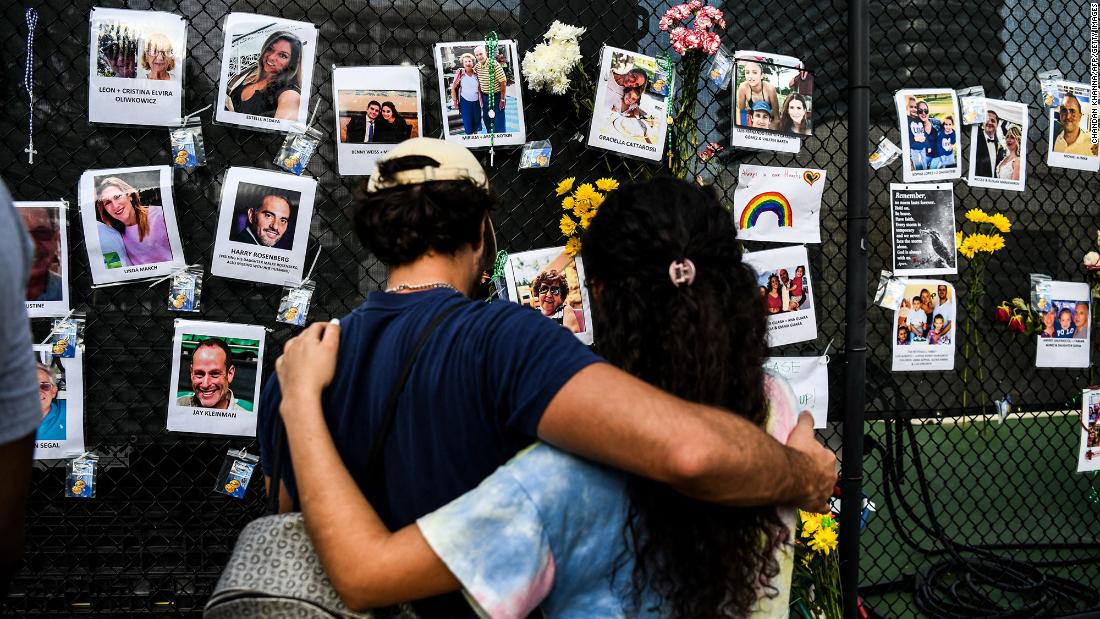
I was headed to the site of another tragedy. While many of the residents who died or remain unaccounted for are Jewish, many others called the building home. Their friends and families, like those in the Jewish community in Surfside, are struggling to make sense of this tragedy, while grieving for the loss of their loved ones.
As a rabbi in the area, I view my role as helping the Jewish victims and their families respond to the collapse, relying on the principles and practices of our faith to do so. This task has proven to be nothing short of formidable.
But when I visited The Shul of Bal Harbour, one mile north of Champlain Towers, I heard the powerful words of Rabbi Sholom Lipskar, who reminded me of an essential truth about Judaism -- our responsibility is to respond to whatever comes our way. As Rabbi Lipskar alluded to, we are all responsible for one another. It is our responsibility to provide for those undergoing trauma and to ensure that each of their needs are being met, both those grieving lost friends and family and those waiting painstakingly to hear news that was not coming -- the torture of not knowing whether their loved ones were alive or dead.
At the family relocation center, I met with people who had lost everything. I had no words -- all I could do was listen to their stories and be present in the moment. Many were holding out hope, even though only one survivor had been rescued from the rubble just hours after the collapse.
And when Miami-Dade County Mayor Daniella Levine Cava announced that they were calling off the search for survivors last week, I could not imagine the grief and despair these families must have felt. The victims include newlyweds and seniors, along with those visiting from Paraguay, Argentina, and elsewhere. Others had just moved into what they thought were dream homes overlooking the ocean. Now, members of the clergy are performing funerals for multiple victims at a time.
In Judaism, funerals are conducted as soon as possible, with shiva, a week-long mourning period, beginning immediately after. When the remains have been found, they are buried at the funeral. If the head and most of the body are found later than the other limbs, for example, then they are buried in a separate grave.
But what happens when the remains are never recovered? Judaism teaches us, as is affirmed by a response by Conservative Rabbis Kass Abelson and Meyer Rabinowitz , that the ritual of mourning beings when we reach the point of yeush, or despair. When the mayor called off the search and rescue operation this week, we began performing memorial services for those who had not been found and started observing shivah. If the bodies are found later (may God help it be so, if and only if it helps the families gain a sense of closure), they will be buried, and the burial day will constitute the one and only day of shiva.
The reason for such a quick funeral and for shiva is for the mourners to be comforted by their community -- to know they are not alone at a moment of intense vulnerability. People bring food to each other's homes and gather with prayers. It helps create a sense of closure.
Without the body and burial, there is no closure, which is why many have done vigils and memorial services for all the deceased. On Thursday, there was an interfaith concert at Temple Emanuel of Miami Beach to raise money for the victims' families as well as to lift people's spirits. The most poignant moment for me was when Elizabeth Zito sang "I am not Alone," and conductor Mark Rossi invited all the attendees to join in.
We continue to pray every day for all those affected by the tragedy of Surfside. When we undergo trauma, as our community has, may we recognize the importance of taking care of ourselves. Being present for people, listening to their stories, or offering to get them what they need, be it an energy drink or some food, is such an important mitzvah (commandment).
I have great gratitude for the first responders, as well as the clergy, social workers and therapists who have helped people get through this trying time.
This coming week I will be returning to Surfside and seeing what I can do to continue to help. It is times like this, when the shock of the initial crisis has passed but the void is still much present, that those who have been displaced and are adrift need us the most. May God give each of us the strength to do all we can to help those impacted by this horrific event.
"try" - Google News
July 12, 2021 at 06:13PM
https://ift.tt/3i6qdey
Rabbi: What we try to do for the mourners at Surfside - CNN
"try" - Google News
https://ift.tt/3b52l6K
Shoes Man Tutorial
Pos News Update
Meme Update
Korean Entertainment News
Japan News Update
Bagikan Berita Ini














0 Response to "Rabbi: What we try to do for the mourners at Surfside - CNN"
Post a Comment